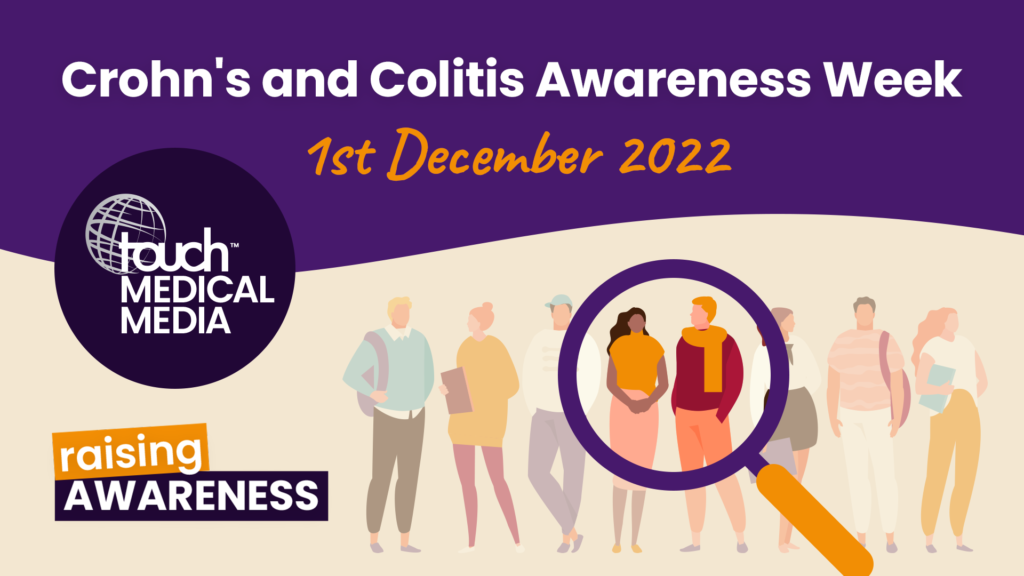
Crohn’s disease and ulcerative colitis are types of chronic inflammatory bowel disease (IBD) – a long-term inflammation of the gut that affects men and women.
Crohn’s disease is most prevalent in women, whilst ulcerative colitis is generally more common in men (TH). Both conditions have a reported hereditary link, with around 1 in 4 people with IBD having a family history of the disease.
Crohn’s disease specifically involves inflammation of the lining of the digestive tract, usually the small intestine, but sometimes the large intestine and – rarely – the upper gastrointestinal tract. Whereas, in ulcerative colitis it is the lining of the colon and rectum which can become inflamed and ulcerated.
Both are painful and debilitating life-long conditions that can severely impact education, work, social and family life, particularly as individuals can experience unpredictable alternating periods of remission and/or flare-ups, some of which can be life-threatening.
Unfortunately, there is currently no known cure for Crohn’s or colitis, and the underlying mechanisms behind their development is not yet fully understood, so there is little known about prevention.
WATCH: Dr. Gil Y Melmed on the health burden and available therapies for Crohn’s disease and colitis
That said, often symptoms and their impact on quality of life can be managed.
Crohn’s and colitis symptoms include:
- Diarrhoea
- Reduced appetite
- Fatigue
- Severe abdominal pain and cramping
- Unexplained weight loss
- Rectal bleeding (blood in stool)
There are a number of treatments available to manage both conditions. Current therapies include anti-inflammatory medication, immunosuppressives, antibiotics or surgery (including colon or partial intestine removal). There are also a string of new therapies that are currently under clinical investigation.
WATCH: Prof. Marla C. Dubinsky discusses the LUCENT-2 study investigating the IL-23 inhibitor, mirikizumab, as a maintenance therapy in moderate to severe ulcerative colitis Part 1 | Part 2
When it comes to the typical age of diagnosis, it generally differs for men and women; men are often diagnosed later in life than women – women are frequently treated sooner – meaning men are at higher risk of developing other conditions.
In the UK, 1 in 4 people are diagnosed before they turn 30 – and 1 in 123 people already have Crohn’s or colitis. Worldwide, IBD affects an estimated 10 million people, though experts predict this may be higher, especially if other western countries have similar ~1% prevalence rates to those reported in the UK and US (in the UK, for instance, someone is diagnosed with Crohn’s or colitis every 30 minutes).
However, as Editorial Board member, Dr. Gil Y Melmed (Cedars-Sinai, Los Angeles, CA, USA) highlights, people who suffer with Crohn’s or colitis have symptoms that are invisible to the passer-by:
“These conditions are not rare, but they’re not super common either, and so on a societal level it’s very likely that you know somebody with Crohn’s and colitis, but you may or may not know.”
To help change that narrative, 1-7 December is Crohn’s and Colitis Awareness Week (#IBDvisible)
Because as Dr. Melmed points out, it’s not just the symptoms that adversely affect people:
“… people who are affected are often in the bathroom, talking about or dealing with abnormalities in their bowel movements and their bowel habits, and it’s not always easy or comfortable for people living with the disease to talk about it. So raising awareness allows for an opportunity to let everyone know that these conditions exist – to make it more normative in society to talk about some of the issues that people living with these diseases suffer from.”
touchIMMUNOLOGY supports Crohn’s and Colitis Awareness Week and its mission by providing online education to increase understanding of both these conditions, how they can be treated and enabling individuals to keep up to date with ongoing clinical research in the field.
Learn more by delving into our educational content around inflammatory bowel diseases.
Alternatively, you can get in touch to find out how you could benefit from our educational activities.


